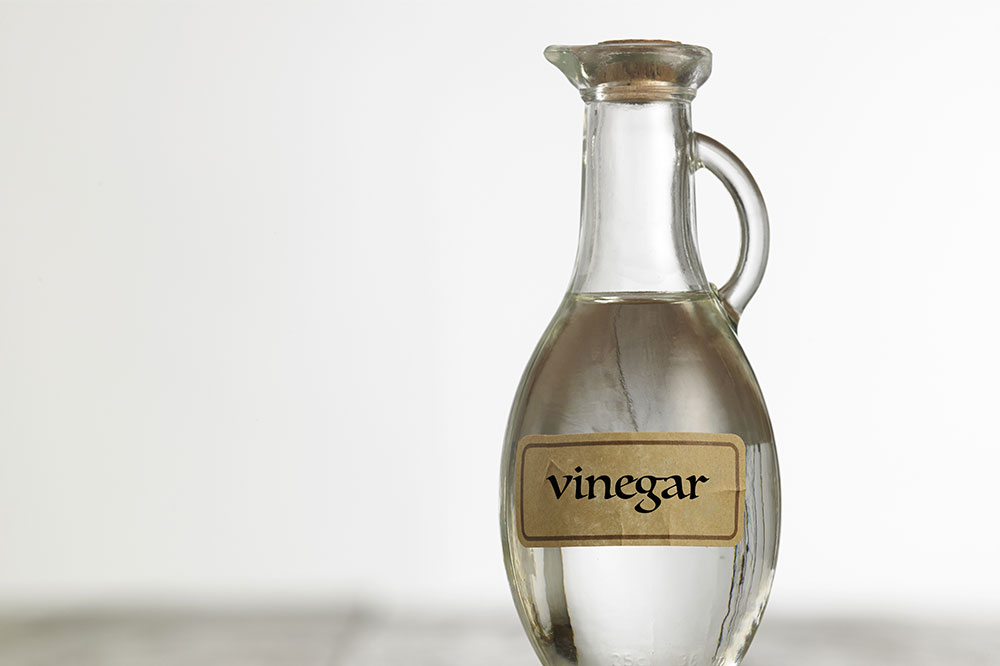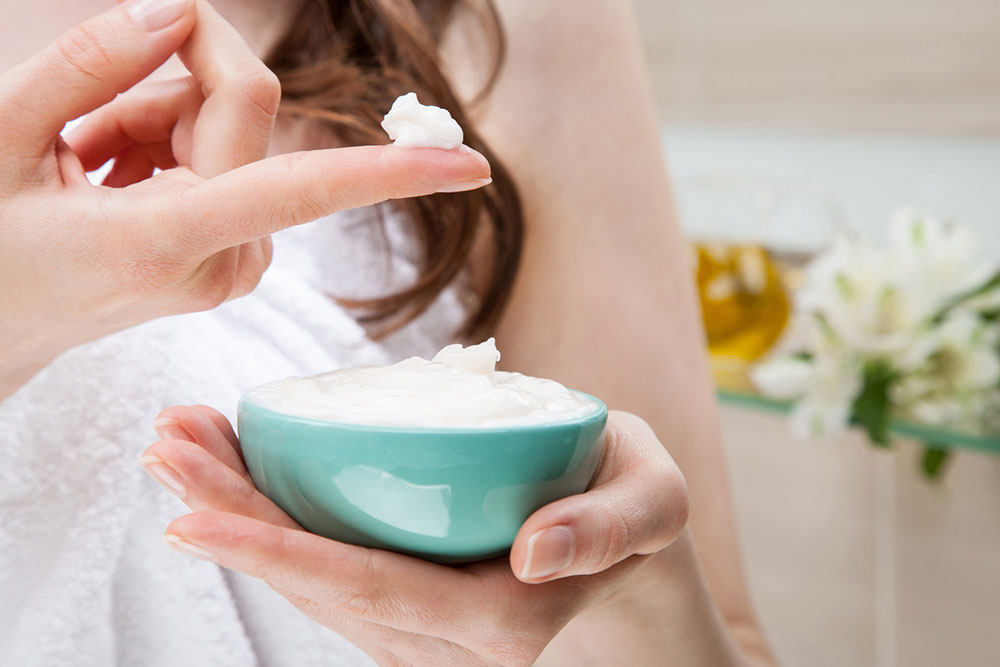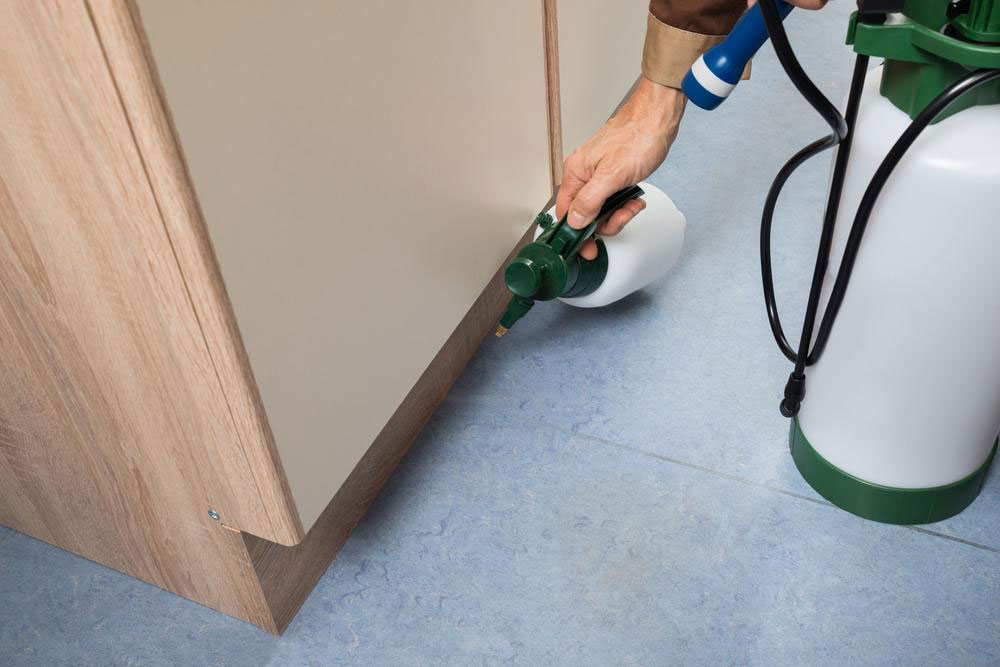White Vinegar for Ant Control – How It Works and Ways to Use
According to the National Wildlife Foundation, there are over 12,000 species of ants around the world. While most of them are harmless, they can carry bacteria, leading to the spread of disease and infection around the home. Professional pest control services can help you manage ant infestation, but they can be quite expensive. Fortunately, you can consider several natural and safe remedies to get rid of and repel pests around your home.

White vinegar as a repellent
Ants have a rather powerful sense of smell that they use to find their food, which is essential for their survival. The strong acidic smell of vinegar overwhelms this sense, which can confuse the pests and make them leave the area. Additionally, when scout ants enter homes, they generally leave a chemical trail behind that helps worker ants follow them to the food source. This can cause an ant infestation in your backyard and home. Vinegar helps get rid of the chemical trails. The pungent smell makes it harder for ants to find their way to the food source, making them return to their colony until they can set up another trail.
However, you should only use white vinegar as an ant repellent. Although apple cider vinegar can help reduce chemical trails, it is not as effective and may also attract more ants because of its sweet smell. On the other hand, white vinegar can also be used to deter the entry of other pests like squirrels, mice, spiders, skunks, centipedes, and raccoons. Nevertheless, vinegar alone cannot help you get rid of ants. While it may confuse them for a little while, you must adopt good sanitation practices and seal common entry points to avoid future infestations as well.
Ways to use vinegar for ant control
White vinegar is a cheap pantry staple in most homes. Here are a couple of ways to use white vinegar to get rid of ants in your home:
DIY vinegar spray
To create a DIY spray, mix equal parts vinegar with water in a spray bottle. Use a glass bottle instead of plastic, as it will catch the least amount of residue, allowing you to reuse the bottle in the future.
Steps:
– Locate parts of the home that are most likely to attract ants, i.e., kitchen counters, baseboards, damp areas such as the bathroom and kitchen, and places that lead to the outdoors, such as windows and doorways.
– When you spot an ant trail, spray the vinegar solution and wipe along it to disrupt it. This will also help you directly eliminate the ants. If you cannot spot the trail around your home, spray the areas where you last spotted them.
– Vinegar sprays can be used in the garden as well. While it may not be possible to get rid of all ants in open areas, it may help maintain plant health, especially if it is prone to infestations. You may also spot ants around indoor plants. A vinegar spray is considered safe for most plants, but be sure to double-check if they can withstand its acidity. Do not spray the edible parts of the plant, only the stems and leaves.
Vinegar-soaked cotton balls
If you have located the entry points for ants in your house, this is the best strategy to use. Simply soak a few cotton balls in a white vinegar and water solution and place them at the opening. The cotton balls will act as a physical barrier, while the vinegar will repel ants until you can fix the hole with a sealant. Replace the cotton balls once a week to ensure the vinegar’s smell is strong. If the plants in your home or garden are sensitive to acids, you can also place cotton-soaked balls around them to repel ants.
Is vinegar a long-term solution?
As vinegar is a smell-based solution meant to deter ants from wandering around your home, it may not work in the long run. Even though it can be used for as long as you want with no real side effects, it can be tedious to have to constantly spray and clean areas with this solution or to have to change the cotton balls every week. Additionally, if your home is a comfortable environment for pests with food, water, and shelter, they are bound to keep returning. Certain smells can also attract ants to your home. These include candy and sweet-scented foods or beverages, foods with carbohydrates and starches, fruit and food-scented candles, certain perfumes, meat, nuts and seeds, grease and oil fats, plants, dirty laundry, and sweet-smelling laundry detergents.
Prevention
To keep ants away, you seal all the entry points, use bait traps, and keep all trees and bushes trimmed. Consider removing any attractants by:
- Cleaning up spills right away
- Putting food away promptly
- Changing garbage bags regularly
- Cleaning dirty dishes after every meal
- Keeping pet food bowls off the ground
- Fixing leaky sinks and faucets to prevent dampness in hidden areas




